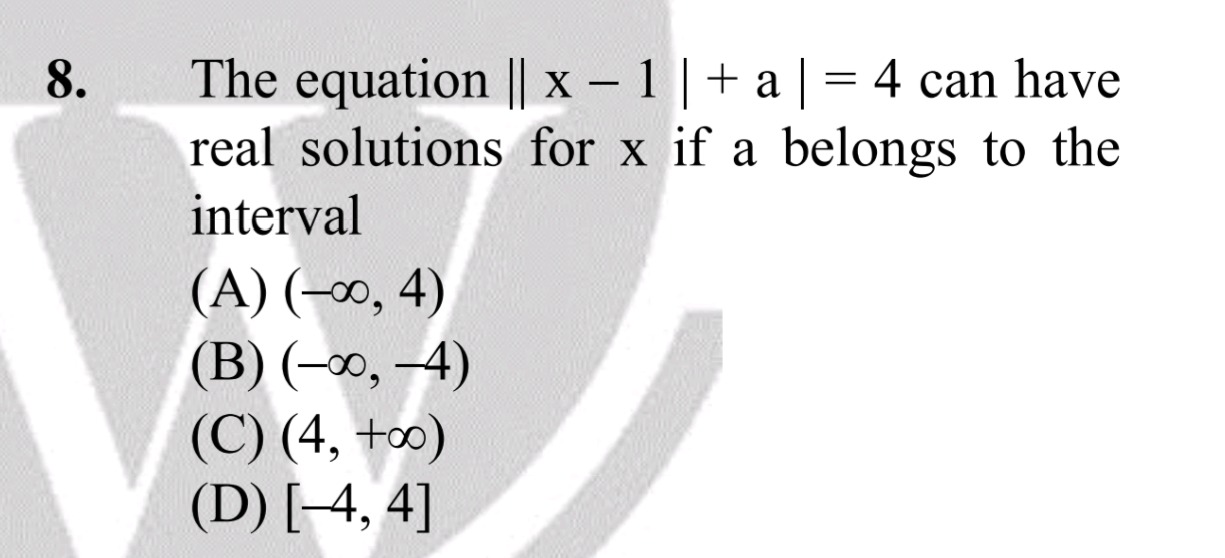Question
Question: The equation || x - 1 | + a | = 4 can have real solutions for x if a belongs to the interval...
The equation || x - 1 | + a | = 4 can have real solutions for x if a belongs to the interval

(-∞, 4)
(-∞, −4)
(4, +∞)
[-4, 4]
A
Solution
Let Y=∣x−1∣. Since x is real, Y≥0.
The given equation becomes ∣Y+a∣=4.
This leads to two possibilities:
-
Y+a=4⟹Y=4−a. For real solutions of x, Y must be non-negative, so 4−a≥0⟹a≤4.
-
Y+a=−4⟹Y=−4−a. For real solutions of x, Y must be non-negative, so −4−a≥0⟹a≤−4.
The original equation has real solutions for x if at least one of these conditions is met. Therefore, a≤4 OR a≤−4. The union of these two conditions is a≤4. So, a∈(−∞,4].
Comparing this with the given options, option (A) is (−∞,4). This option excludes a=4. However, for a=4, the equation becomes ∣∣x−1∣+4∣=4, which simplifies to ∣x−1∣=0 (from 4−a=0) or ∣x−1∣=−8 (from −4−a=−8). ∣x−1∣=0 gives x=1, which is a real solution. Therefore, a=4 should be included in the interval. Given that this is a multiple-choice question and (−∞,4] is not an option, and (A) is the closest, it suggests a potential omission of the endpoint in the option.
